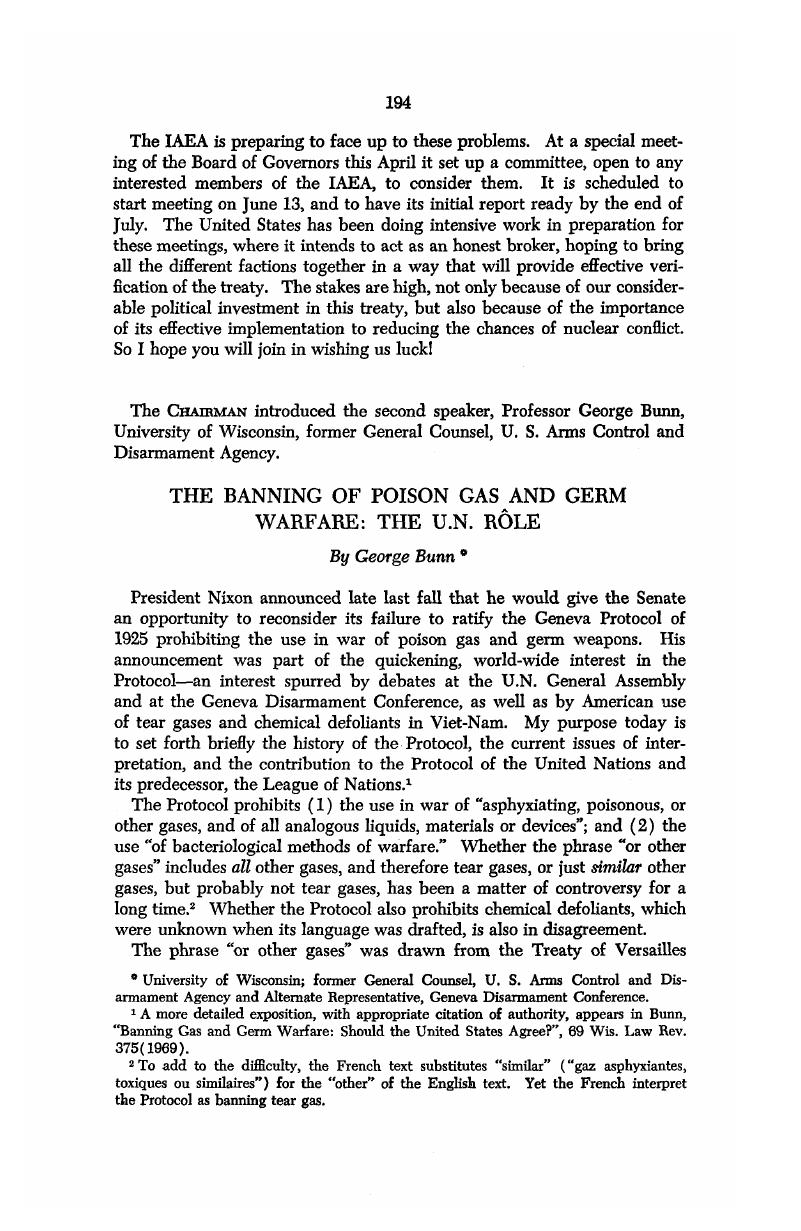Article contents
The Banning of Poison Gas and Germ Warfare: The U.N. Rôle
Published online by Cambridge University Press: 28 March 2017
Abstract
An abstract is not available for this content so a preview has been provided. Please use the Get access link above for information on how to access this content.

- Type
- Panel: The United Nations and Disarmament
- Information
- Copyright
- Copyright © American Society of International Law 1970
References
1 A more detailed exposition, with appropriate citation of authority, appears in Bunn, , “Banning Gas and Germ Warfare: Should the United States Agree?”, 69 Wis. Law Rev. 375 (1969)Google Scholar.
2 To add to the difficulty, the French text substitutes “similar” (“gaz asphyxiantes, toxiques ou similaires”) for the “other” of the English text. Yet the French interpret the Protocol as banning tear gas.
3 The United States has recently withdrawn one defoliant from use there.
- 2
- Cited by


